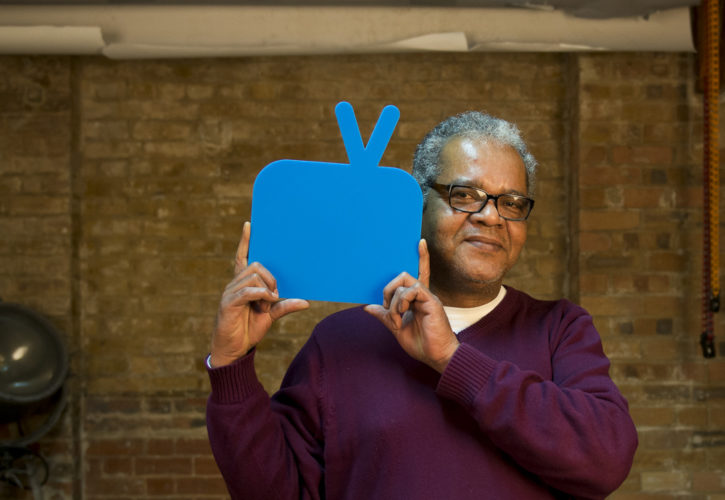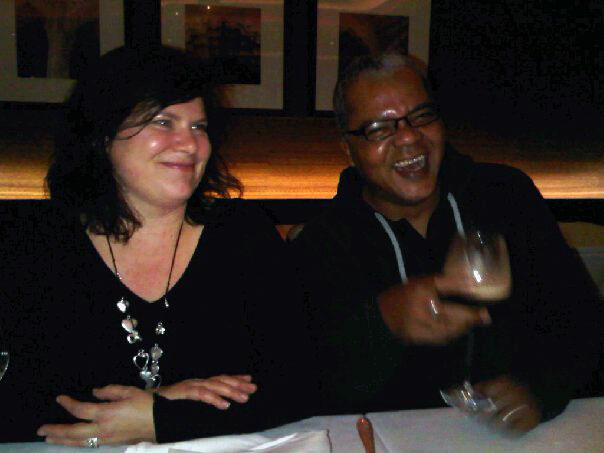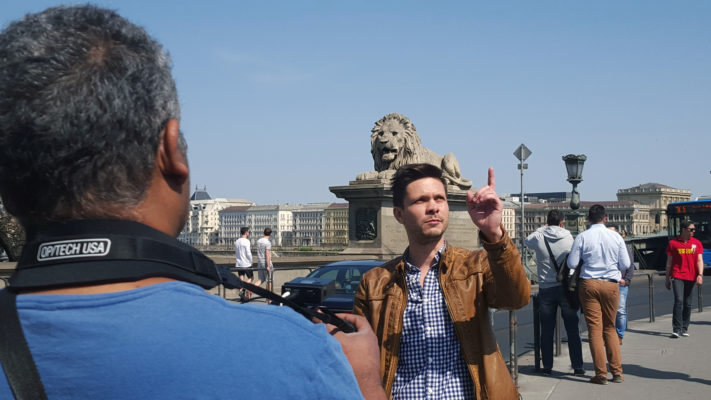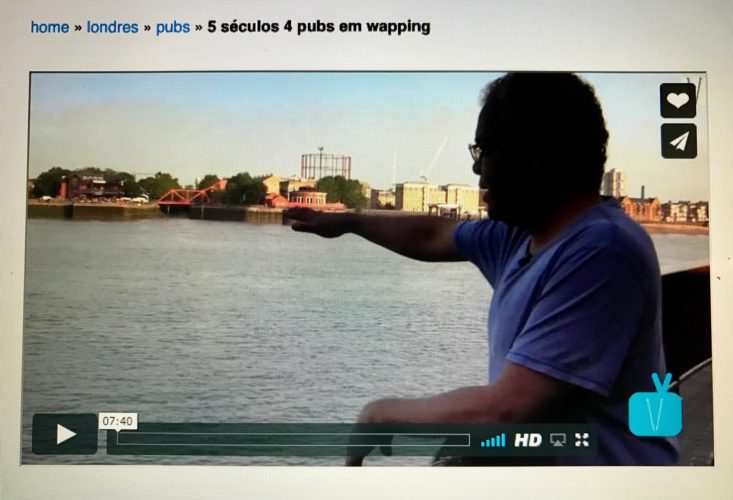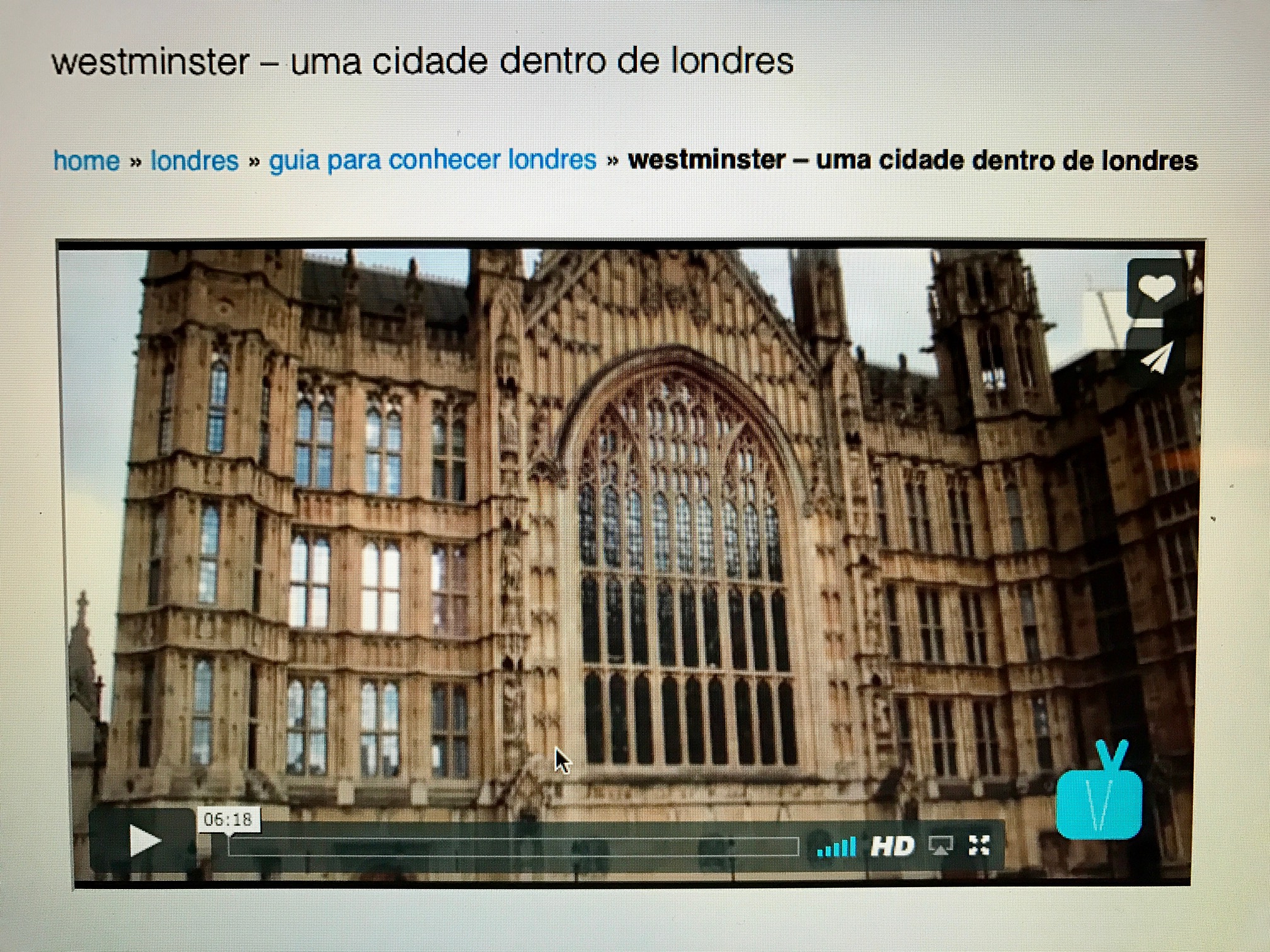The Anglo-Brazilian Affair
Interview with Silvino Ferreira Jr,director at Canal Londres TV
Why did you decide to create a Brazilian Portuguese TV channel in the UK?
I first lived in London as a student for 1 year between 1998 and 1999. At that time the Brazilian community in London was very small. When I came to live here in 2006 I observed how the number of Brazilians had increased. I could hear Brazilian Portuguese everywhere: on the streets, on the bus, in pubs.Talking about that change with my wife we came up with the idea of producing a documentary about Brazilians in London. The idea was to find out how they adapt to a culture so completely different from the one they left behind. At some point Susan, my wife, came up with the idea of having our own Internet channel. We decided to produce mini-documentaries where Brazilians would tell their stories and share their experiences as immigrants.
What audience do you target?
Even before we launched Canal Londres, in 2009, we realised that to reach a wider audience we would have to target Brazilians in Brazil, a country with 200 million people as well as Brazilians living in London. Moreover we thought that only telling people's stories wouldn't be enough so we decided to go for a touristic approach as well as expanding our coverage beyond London and the UK.That was the right decision. Not only because almost 8 years since Canal Londres was launched we have produced nearly 800 videos in 17 European countries, but because travelling is the best part of what we do!
Where are the biggest Brazilian community in Europe?
In the UK.
What attracts Brazilians to the UK?
There are different reasons. For those who want to learn English, coming to London also provides an opportunity to travel to European countries and interact with different cultures within a relatively small distance. There are also those who come for economic reasons, looking for an opportunity to save some money either to send back to help their families or to build their own business when they return. I think the strength of the pound plays a big role in their decision to come to the UK.There are also those who love British culture. For me this was the reason why I came to study English in London when it would have been cheaper to go to the USA or Canada for instance.
What culture shocks might Brazilians experience in London?
Brazilians are very expansive and informal; we become best friends as soon as we meet, we kiss and hug each other at every possible occasion! The British behave in a completely different way. I've heard many complaints from Brazilians but usually I say that we are the ones who should make an effort to adapt.For those arriving during the winter the weather could be challenging, not just the low temperatures but mainly the darkness. It's very easy to get depressed. If you talk to a Brazilian doctor in London he would certainly confirm that during the winter the number of Brazilians looking for treatment increases.There are some who can't speak English even after years in the country. For those Brazilians the language will always be a barrier as it seems they simply believe they cannot learn it; it’s a kind of block.In the past the food used to be a difficult thing to adapt to but now it's not so difficult to find Brazilian products as well as Brazilian restaurants in London.
How many people work with you?
Seven.
What would be your advice to Londoners who want to become more familiar with Brazilian culture?
Read some of our writers. Machado de Assis, João Ubaldo Ribeiro, Jorge Amado, Lima Barreto, among others can be a good start. My wife takes part in a Book Club, organized by the Brazilian Embassy, and I think possibly she already knows more about our culture than many Brazilians!
For Brazilians who have lived for many years in Europe, is it difficult to re-integrate into Brazilian society? What challenges might they face?
Re-integration can be very difficult indeed in many aspects. It could be simply things like respecting a queue and stopping the car at a zebra crossing. I think the long period of slavery in our history left the terrible habit of considering that manual work is for the poor whereas in London we have “do it yourself” culture. For those who have children the challenge is even bigger. A good education is very expensive in Brazil and of course the violence is also a serious issue and concern.Nelson Rodrigues, a Brazilian writer, once said that he never wanted to live abroad because all of his friends who had done so returned changed. For me that is one of the best parts of living abroad. There are good things that have taken place in Brazil thanks to experiences gained by Brazilians who have travelled. The Modern Art Movement in the 20's is one good example of this.
Would you say that Portugal is a transition between your two worlds, London and Brazil?
My experience was exactly the other way round. After living in London as a student I moved to Portugal. I lived there for 18 months and made good friends but I'd say that, apart from the language, they are as different to Brazilians as the British. On the other hand it could be a good transition for some in that after living there you have already gone through the experience of moving to another country. But this could also be true if you have left Brazil for any other place before moving to London.
What would be your best advice for a Brazilian planning to settle in the UK?
Plan your move. Get as much information as you possibly can. Make sure it's what you really want for your life.
FORM-Idea.com London, 25th February 2017. Interviewed by Pierre Scordia and Annie Clein.
